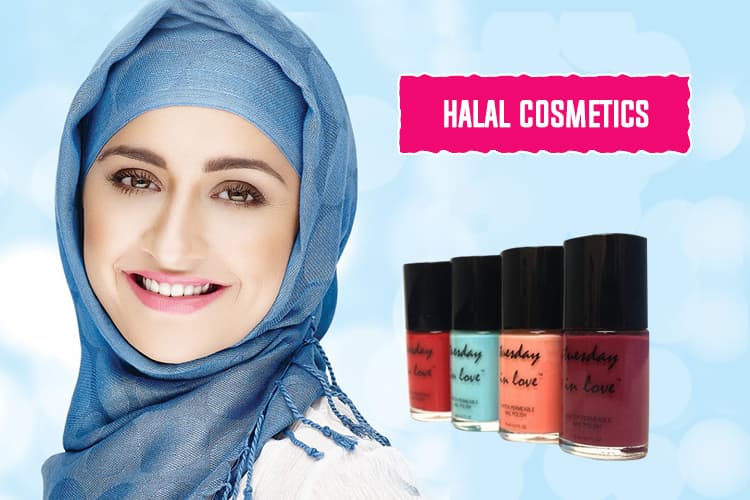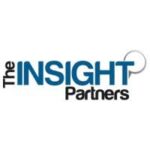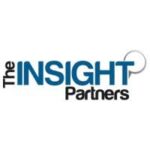The scope of our recent study on ” Halal Cosmetics Market Forecast to 2028 – COVID-19 Impact and Global Analysis – by Product Type (Skincare, Haircare, Makeup, and Others), Category (Men, Women, and Unisex), and Distribution Channel (Supermarkets and Hypermarkets, Specialty Stores, Online Retail, and Others) includes the factors fueling the market growth; revenue estimation, forecast, and market share analysis; and the identification of significant market players and their key developments.
The halal cosmetics market is expected to grow from US$ 36,686.54 million in 2022 to US$ 79,861.73 million by 2028; it is estimated to grow at a CAGR of 13.8% from 2022 to 2028.
“Halal cosmetics” refer to cosmetic products manufactured and composed of ingredients that are permissible under Islamic Shariah (law). Halal compliance of cosmetics is applied across the entire supply chain, ranging from sourcing ingredients to manufacturing and transportation/distribution.
Get FREE Sample Copy @
Based on distribution channel, the halal cosmetics market is segmented into supermarkets and hypermarkets, specialty stores, online retail, and others. In 2021, the specialty stores segment was the dominant segment in the market. Specialty stores provide an excellent consumer experience with unique features such as high-level customer service, premium offers, and special discounts. Consumers prefer purchasing halal cosmetics from specialty stores as a wide range of halal cosmetics is present in the store. Moreover, the staff has complete knowledge about the product and helps the buyers know the product specifications before buying. Thus, increased focus on customer satisfaction has led to a surge in demand for purchasing halal cosmetics from specialty stores. Online retail is expected to be the fastest-growing segment in the halal cosmetics market. Online retail is one of the fastest-growing distribution channels owing to its convenience in terms of shopping and product delivery. Online retail stores offer a wider range of products and heavy discounts; also, consumers can conveniently buy desirable products remotely.
The global Halal Cosmetics market is segmented into five main regions—North America, Europe, Asia Pacific (APAC), the Middle East & Africa (MEA), and South & Central America. In 2021, Asia Pacific dominated the global halal cosmetics market. The increase in the Muslim population and the rise in spending by the Muslim population on cosmetic products are driving the halal cosmetics market across the region. According to the State of Global Islamic Economic Report, countries such as India, Malaysia, and Indonesia are among the top 5 countries with the highest Muslim population spending on cosmetic products. Thus, these factors are driving the halal cosmetics market. The Middle East & Africa region is the second-largest region for the halal cosmetics market in 2021.
Impact of COVID-19 Pandemic on Halal Cosmetics Market
Initially, the COVID-19 pandemic adversely affected the halal cosmetics market due to the shutdown of manufacturing facilities and the restrictions on transportation and logistics. The disruptions in the supply chain hampered the supply of halal cosmetics. However, businesses are growing as governments of various countries have eased imposed restrictions. Moreover, vaccination drives have led to a rise in business activities across the globe. The start of operations in the halal cosmetics manufacturing units is positively impacting the halal cosmetics market. The relaxation of trade restrictions is also having a positive impact on the halal cosmetics market as there are countries that majorly import halal cosmetic products to meet the demand from the consumers.
Halal cosmetics are products that do not include any ingredient derived from animals. These products are progressively gaining traction worldwide, especially since customers across all industries indicate a preference for cruelty-free cosmetic products. They are made using a complex combination of ingredients in accordance with halal guidelines. Manufacturers continuously check the products to ensure that they meet the halal grade. In comparison to standard cosmetics products on the market, the safety and quality of halal cosmetic principles are difficult to assess. This reason also adds to the increased global popularity of halal-certified cosmetics. As a result, the halal cosmetics business is expected to rise in the future. Moreover, the younger generation is more concerned about adopting environment friendly practices. Halal is the most recent addition to the sustainability category. Consumer understanding of ingredients used in cosmetics has risen dramatically in recent years. Consumers’ changing behavior patterns, which have made them more concerned about animal welfare, have resulted in a shift toward more sustainable and environment friendly alternatives.
Get full Access of Report:- https://www.theinsightpartners.com/reports/halal-cosmetics-market
Some of the primary key players operating in the global halal cosmetics market include Clara International Beauty Group, Inglot Cosmetics, Inika Organic Australia, IVY Beauty Corporation, MMA Bio Lab Sdn Bhd, OnePure LLC, PT Paragon Technology and Innovation, PHB Ethical Beauty Ltd., Sampure Minerals, and IBA Cosmetics. The major players in the halal cosmetics market are focusing on strategies such as research and development and new product development to increase the geographical presence and consumer base globally.


